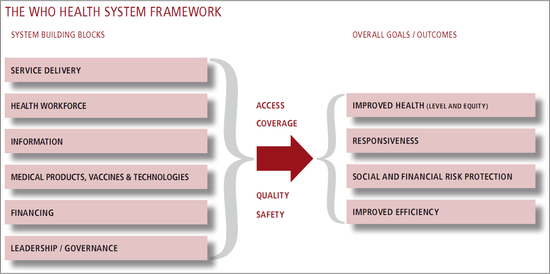
Health care systems – their characteristics, the interplay of their actors, and the assessment of their performance – are complex and usually not well understood. This course provides a structured introduction into how health care systems are organized, financed and regulated in general and is applicable to both high-, middle- and low-income countries.
Lectures will provide a general introduction into health systems frameworks, actors and functions of health care systems, with an emphasis on systems’ building blocks in the first half and on the intermediate and final outcomes health systems seek to achieve (and how to assess success and failure) in the second half.
Мова: English
Інформація про курс
The aim of the module is to enable students to understand, analyse and evaluate heath care systems in different contexts. Students will develop the following competencies and social skills: (i) ability to describe and compare different health care systems, (ii) capability to describe and analyse the development of health care systems, (iii) work in a multi-disciplinary and -cultural environment and team
Health care systems – their characteristics, the interplay of their actors, and the assessment of their performance – are complex and usually not well understood. This course provides a structured introduction into how health care systems are organized, financed and regulated in general and is applicable to both high-, middle- and low-income countries.
Lectures will provide a general introduction into health systems frameworks, actors and functions of health care systems, with an emphasis on systems’ building blocks in the first half and on the intermediate and final outcomes health systems seek to achieve (and how to assess success and failure) in the second half.
The module will thus first provide a general introduction into the framework, functions and objectives of health care systems. The following blocks deal with financing (raising resources, pooling, allocation, purchasing and third party payer-provider relationships, reimbursement); governance, stewardship as well as regulation of third-party payers and health care providers; care delivery/ provision of health services; medical products and technology; and the health workforce. Well-known types of health care systems (social health insurance/ "Bismarck", tax-financed/ NHS etc.), their reforms as well as questions regarding the public-private mix will be presented and discussed.
In the second half, lectures introduce access and coverage, quality and safety, technical and allocative efficiency, responsiveness, and overall Health System Performance Assessment, looking at final outcomes, i.e. improved health, responsiveness, social and financial risk-protection, and efficiency.
Lectures with visualization and discussion, including a workshop on how to find information and data for individual study and the seminar paper.
Students are encouraged to exchange insights and opinions with the lecturer(s) and in the group.
Зміст курсу
Introduction &Frameworks, Busse (11.04.2024)
Financing I (Raising and Pooling) , Prof. Busse (18.04.2024) :
Financing II (Purchasing and Reimbursement), Waitzberg (25.04.2024) ONLINE SESSION!!:
Leadership, Governance and Stewardship, Prof. Busse (02.05.2024):
Today on Campus again!Health Workforce , Busse (16.05.2024)
Service Delivery, Prof. Busse (23.05.2024)
Medical Products, Prof. Busse (30.05.2024)
Access and Coverage, Waitzberg (06.06.2024)
Quality and Safety, Waitzberg (13.06.2024)
Improved Health, Prof. Busse (20.06.2024)
Financial protection and Equity in Financing, Prof. Busse (27.06.2024)
Responsiveness, Prof. Busse (04.07.2024)
Technical and allocative efficiency, Prof. Busse (11.07.2024)
Summary: Health System Performance Assessment, Prof. Busse (18.07.2024)
Seminar paper guidance